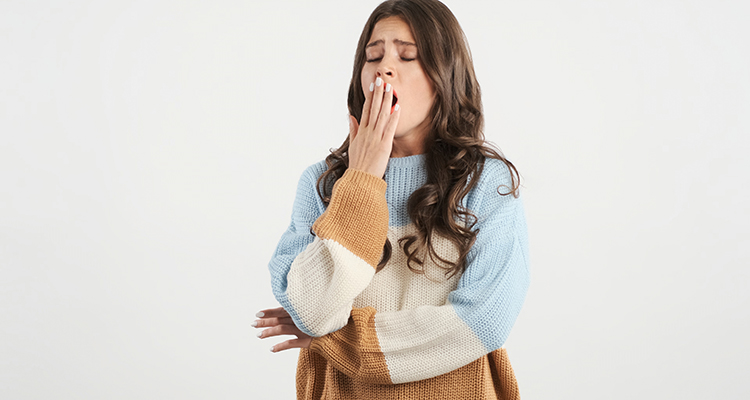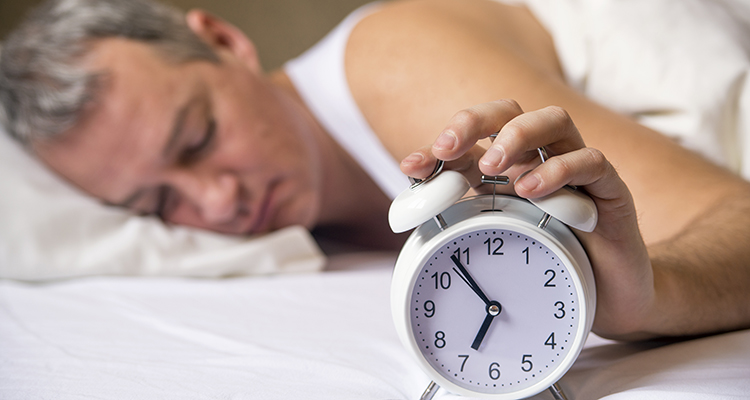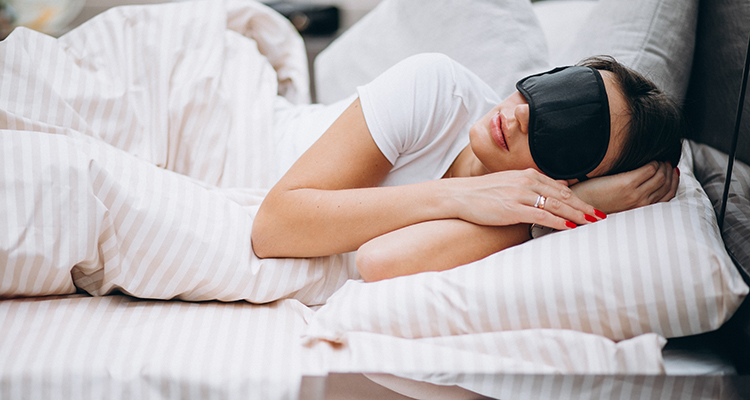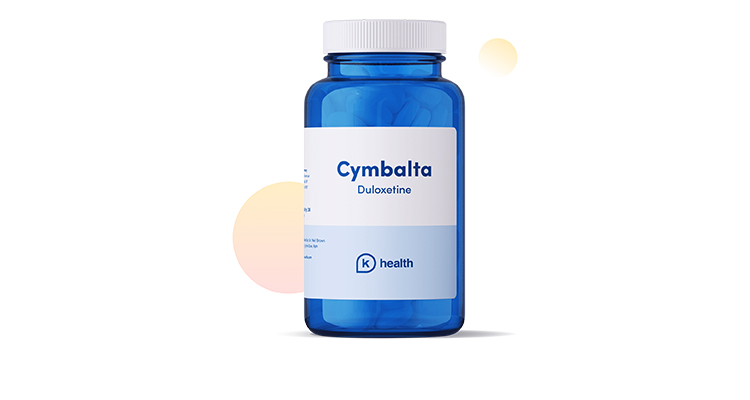How to Sleep While Taking Cymbalta
Depression is the most common mental disorder worldwide and affects adults and children from all walks of life. Most cases of depression are treated using a combination of cognitive behavioral therapy (CBT) and medication. There are countless anti-depressants on the market, with each one providing its own specific benefits.

Cymbalta is one such medication used to treat depression and anxiety as well as chronic muscle or bone pain, fibromyalgia, and diabetic peripheral neuropathy. Unfortunately, as Cymbalta works in the body to treat these ailments, it may also cause a variety of unwanted side effects. One of which is insomnia.
In this article, we’ll take a closer look at this drug plus tips on how to sleep while taking Cymbalta.
Content
Cymbalta Overview
Before we get into tips for sleeping while on Cymbalta, let’s take a closer look at the drug itself. Understanding the active ingredients and the effects they have on your body will make them easier to overcome and combat insomnia.

Cymbalta is one of the most common antidepressants and is often used to treat major depressive disorders as well as generalized anxiety disorders. Cymbalta is approved by the FDA to also help treat nerve pain, musculoskeletal pain, fibromyalgia, and nerve damage caused by diabetes. Cymbalta is the brand name for the serotonin-norepinephrine reuptake inhibitor (SNRI), duloxetine.
Most SNRIs interact with two chemicals in the brain – serotonin and norepinephrine – and prevent your brain from reabsorbing them into your system. Doing so helps alleviate pain and improve your mood, combating feelings of sadness, hopelessness, and stress. It’s important to note that SNRIs work differently than selective serotonin reuptake inhibitors (SSRIs) which only stop the reabsorption of serotonin.
Cymbalta is commonly used in patients who suffer from depression or anxiety due to chronic pain. These two conditions are closely related and often overlap, with 85% of people suffering from chronic pain also experiencing severe depression. Research also suggests that, in some cases, depression can worsen or trigger certain pain symptoms. Cymbalta works to break this cycle of pain and depression. Most users notice improvements within the first few weeks of taking Cymbalta including increased energy and improved sleep or appetite. In depressed individuals, it may take up to eight weeks to notice significant improvements.
Common Side Effects of Cymbalta
While this antidepressant has helped thousands of people overcome their depression and chronic pain, it also comes with a myriad of side effects that could worsen other conditions or trigger new ones. As with most medications, it’s important to weigh the pros and cons before adopting a treatment plan.

Some of Cymbalta’s most common side effects include:
- Sleepiness or fatigue
- Nausea
- Dry mouth
- Weight loss or loss of appetite
- Insomnia or trouble sleeping
- Excessive sweating
- Increased nervousness or anxiety
- Headache
- Sexual side effects
The good news is that in most cases, these side effects are mild and improve within 7 to 14 days. Some people experience more serious side effects when taking Cymbalta, which include:
- Liver failure
- Severe dizziness
- Abdominal pain
- Abnormal bleeding
- Seizures
- Serotonin syndrome
The Connection Between Cymbalta and Sleep
Cymbalta can affect sleep in several different ways. While most people experience trouble sleeping and other insomnia symptoms, others are plagued by chronic fatigue or daytime sleepiness. Ironically enough, excessive daytime drowsiness can lead to the overwhelming need to nap or consume caffeine, making it increasingly difficult to fall asleep at night and, therefore, triggering insomnia.

Over 10% of patients reported insomnia symptoms while taking Cymbalta. These included trouble falling asleep, waking up frequently during the night, waking up earlier than desired, and waking to feel groggy and drowsy. Some patients reported the opposite, claiming they felt constantly tired, had difficulty concentrating, and felt less motivated to start or complete certain activities.
But, why does this happen? One reason is how SNRIs work inside the body. As previously mentioned, SNRIs prevent your body from reabsorbing serotonin and norepinephrine. These two chemicals help keep your brain active and alert while awake. They also suppress REM (rapid eye movement), which is an important stage of the sleep cycle. During REM sleep (which occurs about 90 minutes after you fall asleep), your eyes will move rapidly while closed, your breathing becomes irregular, and your heart rate increases. During this time, brain activity is high. This is when you dream and your brain processes information, facilitating learning and memory strength. Because Cymbalta works to maintain high levels of serotonin and norepinephrine, you may feel more energized at night, making it difficult to fall asleep. This is known as Cymbalta-induced insomnia. You may also experience Cymbalta withdrawal after stopping the use of the medication which can also trigger insomnia symptoms.
Studies show that lack of sleep can worsen depression symptoms and also impact your physical health and well-being. Sadly, Cymbalta-induced insomnia can create a negative cycle of deteriorating emotional, mental, and physical well-being.
How to Sleep While Taking Cymbalta
The good news is that there’s hope for people taking Cymbalta but also having trouble sleeping. By utilizing a few of these tips and tricks you can continue taking this beneficial medication without sacrificing your sleep quality or overall well-being.

Pay Attention to Symptoms and Side Effects
It’s important to pay close attention to the side effects you experience when first taking Cymbalta. You should also know the warning signs of an allergic reaction and other serious conditions. This is especially important when taking an antidepressant or other SNRI that can drastically affect your mood. Keep track of any side effects including their intensity and frequency in a journal or diary and report them to your healthcare provider.
Pay close attention to your sleep patterns and habits within the first few weeks of taking Cymbalta. In most cases, your doctor may suggest you give your body time to adjust to the medication before stopping its use. If insomnia symptoms don’t improve, they may recommend a different antidepressant.
Limit Caffeine and Other Stimulants
When you’re feeling overly fatigued, it can be tempting to reach for coffee, an energy drink, or another form of caffeine for a much-needed energy boost. Unfortunately, doing so while taking Cymbalta can worsen insomnia symptoms.
Technically, caffeine is a drug. And anytime you combine one or more drugs in your body, you’re at an increased risk of experiencing unwanted side effects. When you consume caffeine and other stimulants like nicotine too late in the day or too close to bedtime, it can make it increasingly difficult to fall asleep. Caffeine also affects your body’s cortisol levels, blood pressure, and heart rate which are all contributing factors to insomnia. Swap this type of energy boost for a more natural one, like exercise. Be sure to exercise early in the morning and not too close to bedtime, as physical activity can also make you too aroused or alert to fall asleep.
Try an OTC Sleep Aid
When nothing else seems to work, you can combat insomnia symptoms using an over-the-counter sleep aid or natural supplement like melatonin. Melatonin is a natural sleep hormone that can help you establish healthy sleep patterns. Keep in mind, though, that taking a melatonin supplement while on Cymbalta may increase certain side effects including drowsiness, dizziness, difficulty concentrating, and confusion. Certain sleep aids like St. John’s wort don’t interact well with Cymbalta and should be avoided. For this reason, always confer with your doctor before taking an OTC sleep aid to treat Cymbalta-induced insomnia.
Alter Your Cymbalta Schedule and Dosage
Take into account how you feel after taking your daily dose of Cymbalta. If you feel tired or drowsy, taking it at night may actually help you sleep. If, instead, you feel energized or alert after taking the drug, try incorporating it into your morning routine. That way, the stimulating side effects have time to wear off before bed. While Cymbalta should be taken at the same time each day, it doesn’t matter if it’s taken at night or in the morning, so you can alter your schedule as needed. Once you choose a time, though, it’s important to remain consistent.
You may also need to increase or lower the dosage you’re taking, based on how your body reacts. Most doctors start patients on a low dose of an antidepressant to see how they react. The recommended amount of Cymbalta is 60 mg, but don’t be surprised if your doctor prescribes half this dose to start. Stick with the recommended dose for 14 days to give your body time to adjust, even if you’re experiencing insomnia symptoms. If these symptoms persist for more than 14 days, your doctor may recommend adjusting the dosage or trying a different medication. Never stop taking Cymbalta abruptly. Doing so can cause unwanted side effects and withdrawal symptoms. Your doctor will help you slowly wean off the medication safely.
Adopt Healthy Habits at Night (and Eliminate Others)
All of the activities and rituals you perform leading up to bedtime can drastically impact your sleep. If you’re currently taking Cymbalta and suffering from insomnia, you may need to adjust your nighttime routine and adopt healthier, more beneficial habits. For example, limit screen time before bed. The blue light from your smartphone, laptop, and television screen can interfere with your brain’s natural ability to release melatonin, tricking your body into thinking you should be awake and alert instead of asleep. Avoid heavy or fattening meals before bed that are hard to digest and may cause gastrointestinal discomfort or frequent bathroom trips.
Practice relaxing techniques and activities like meditation, reading, listening to music, journaling, or taking a warm bath. Try to perform these activities at the same time and in the same order each night. Over time, these routine behaviors will trigger your brain and body that it’s time to prepare for sleep, making it easier for you to drift off and stay asleep.
Cymbalta FAQs
Here are some frequently asked questions about Cymbalta that you may want to ask yourself and your doctor before starting treatment.

Does Cymbalta Make It Hard to Sleep?
Yes. Insomnia is a common side effect of Cymbalta. This includes difficulty falling and staying asleep. Some users notice a reduction in sleep troubles after several weeks of taking Cymbalta, while others need to adjust the dosage or change medications.
Can I Take Sleep Aid While Also Taking Cymbalta?
Yes. If you start experiencing sleep disturbances while on Cymbalta, you can take certain sleep aids. Melatonin is a popular and effective natural supplement that can ease insomnia symptoms. Certain medications, like St. John’s wort, shouldn’t be taken with Cymbalta. Always check with your doctor before taking an OTC sleep aid or prescription medication to combat Cymbalta-induced insomnia.
How Common is Cymbalta-Induced Insomnia?
Insomnia is one of the most common side effects associated with Cymbalta, with as many as 10% of users suffering from sleep troubles while taking the antidepressant.
Can I Take Cymbalta Before Bed?
While some people prefer taking their Cymbalta prescription in the morning, if it causes drowsiness, you may want to take it before bed. This may, in fact, help you sleep better and help to combat insomnia symptoms.
Coping with Depression and Pain Without Sacrificing Sleep
If you’re facing a depression diagnosis or living with chronic pain, your doctor may prescribe Cymbalta. But are you worried this SNRI will keep you from sleeping? While a good number of people taking this antidepressant also suffer from insomnia, help is available. By adopting healthy sleep habits or taking an OTC sleep aid, you can experience the benefits of Cymbalta without the unpleasant side effects.

CBT-i is another natural way of easing insomnia symptoms and incorporates many of the suggestions above. If you’re looking for a convenient, easy way to treat your sleep troubles at home, look no further than Somnus Therapy. Click here to get started on your journey to a blissful night’s sleep.














